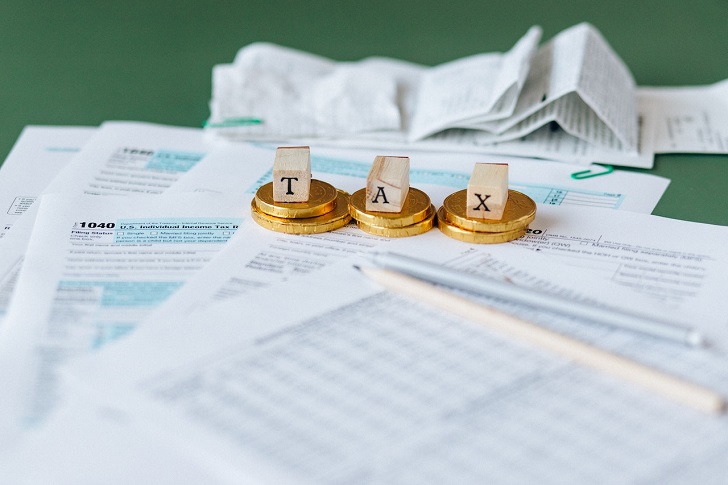
How Tax-Efficient Is Your Mutual Fund?

Mutual funds have long been a popular investment vehicle for individuals seeking to grow their wealth while diversifying their portfolios. However, one crucial aspect often overlooked by investors is the impact of taxes on their investment returns. The tax efficiency of a mutual fund can significantly affect an investor’s after-tax returns, making it imperative to understand how tax-efficient your chosen mutual fund is.
Understanding Tax Efficiency
Tax efficiency in the context of mutual funds refers to the ability of a fund to minimize the tax consequences of its investment activities on shareholders. It’s essential because taxes can affect your investment gains, ultimately reducing your overall return. Two primary factors determine the tax efficiency of a mutual fund: turnover rate and tax management strategies.

Nataliya Vaitkevich/ Pexels | Investors who overlook tax consequences often find their returns eroded by unforeseen tax bills.
Turnover Rate
The turnover rate of a mutual fund represents the frequency with which the fund’s portfolio managers buy and sell securities within the fund. Each transaction can trigger capital gains or losses, which are then passed on to shareholders. A high turnover rate can lead to more frequent capital gains distributions and higher taxes for investors.
Consider two scenarios: Fund A has a turnover rate of 10%, while Fund B has a turnover rate of 100%. This means that Fund B is buying and selling its holdings more frequently than Fund A. Consequently, investors in Fund B are more likely to receive capital gains distributions, resulting in higher tax liabilities than Fund A.
Tax Management Strategies
Mutual funds often employ tax management strategies to minimize the tax impact on their shareholders. These strategies can include tax-loss harvesting, where the fund strategically sells losing investments to offset capital gains and reduce tax liabilities. Another approach focuses on investments with lower dividend payouts, as qualified dividends are often taxed lower than ordinary income.

Pixabay/ Pexels | Tax-efficient investing isn’t a luxury; it’s a necessity for long-term financial success
Furthermore, some mutual funds offer tax-efficient share classes designed to cater to tax-sensitive investors. These share classes are structured to reduce tax-related costs and optimize after-tax returns. They may be available for both actively managed and passively indexed funds.
Tax-Efficient Funds: Index Funds vs. Actively Managed Funds
Index funds and actively managed funds represent two distinct investing approaches, each with implications for tax efficiency.
Index Funds
Index funds are designed to replicate the performance of a specific market index. Index funds tend to be more tax-efficient because they have a lower turnover rate and less frequent trading than actively managed funds. Their passive approach means they make fewer adjustments to their holdings, resulting in fewer capital gains distributions to investors.
Actively Managed Funds
Actively managed funds involve portfolio managers making frequent investment decisions to outperform the market. While these funds might provide the potential for higher returns, they tend to have higher turnover rates, leading to increased capital gains distributions and potentially higher taxes for investors.

Nataliya Vaitkevich/ Pexels | The hardest thing to understand in the world is tax
Assessing Your Mutual Fund’s Tax Efficiency
When evaluating the tax efficiency of a mutual fund, consider the following steps:
- Check Turnover Rate: The fund’s prospectus or website should provide its turnover rate. Look for funds with lower turnover rates, as they are generally more tax-efficient.
- Review Distribution History: Research the fund’s distribution history over the past few years. Consistent high distributions can indicate higher tax implications.
- Research Tax Management Strategies: Understand the tax management strategies employed by the fund. Funds that actively employ tax-efficient strategy are more likely to minimize tax impacts.
- Explore Tax-Efficient Share Classes: Consider investing in tax-efficient share classes if available. These can help reduce the tax burden on your investment returns.
- Consider Index Funds: Index funds can be an attractive option for investors prioritising tax efficiency due to lower turnover rates.
More in Financial Adviser
-
How to Lock In a ‘Good’ APR on Your Personal Loans?
When it comes to borrowing, understanding the intricacies of the Annual Percentage Rate (APR) can feel like deciphering a secret code....
March 13, 2024 -
How to Find the Best Personal Loan With Easy Monthly Payments in 2024
A personal loan is an amount of money borrowed from a financial institution, which you pay back in regular monthly payments...
March 8, 2024 -
Why Italy Tops the List for Solo Adventurers
Forget the guidebooks and ditch the group tours. If your soul craves an adventure that’s uniquely yours, then pack your bags...
March 3, 2024 -
From Talking Cars to AI: The Latest Car Tech at CES
Imagine having a chatty companion on your next road trip. One that tells jokes, remembers your preferences, and even helps plan...
February 24, 2024 -
Know the Pros & Cons of Personal Loans Before Applying!
Are you eyeing a personal loan, perhaps to consolidate debt, finance a home renovation, or cover an unexpected expense? Before you...
February 17, 2024 -
What Are Some Major Benefits of a Business Bank Account & How to Open One?
A business bank account is not just a fancy accessory. It is a necessity. Imagine your business as a high-performance vehicle....
February 7, 2024 -
Navigating the Ties Between Love, Living Together, and Financial Security in Retirement
Picture this: you’re nearing retirement, a time for relaxation and enjoying the fruits of your life’s hard work. But here’s a...
January 29, 2024 -
Top 5 Superyachts of 2022
In a world where social distancing became the buzzword, the allure of superyachts took on an even more glittering appeal in...
January 23, 2024 -
Mark Cuban’s Proven Tips for Business Success
Dive into the dynamic world of entrepreneurship with the maverick mind of Mark Cuban, a serial entrepreneur whose $4.6 billion fortune...
January 20, 2024















You must be logged in to post a comment Login